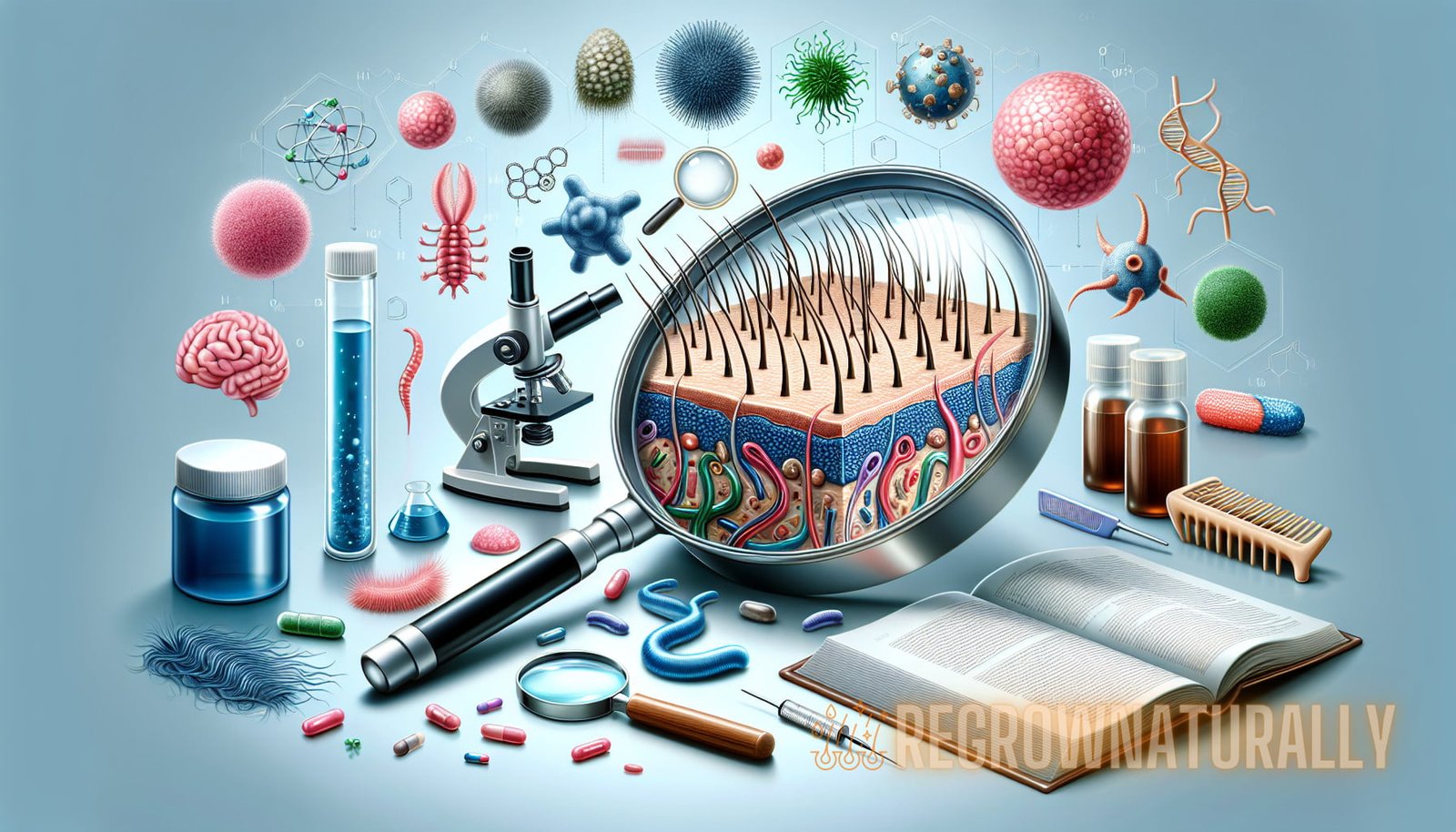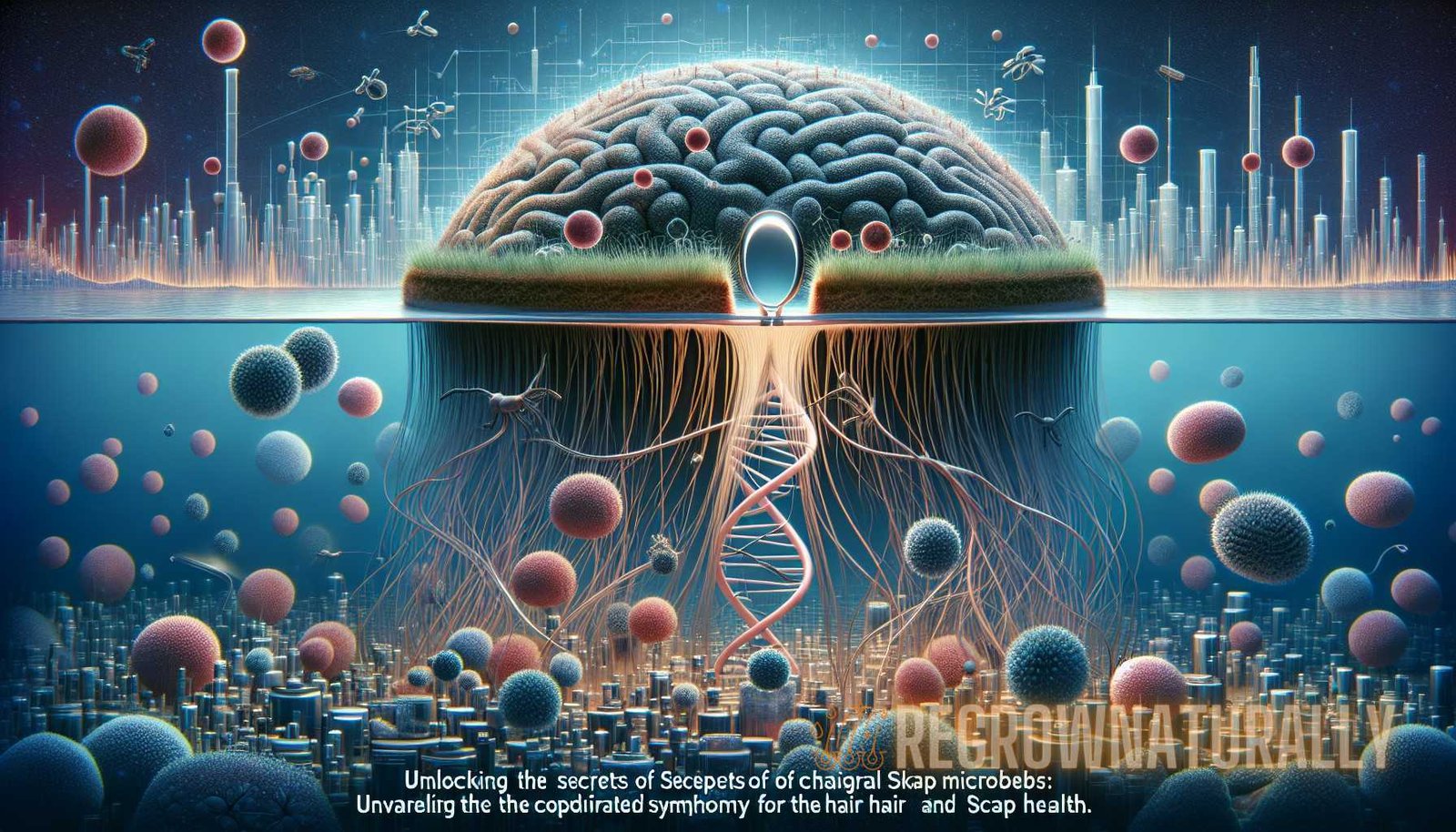Introduction
The scalp microbiome is a complex ecosystem of microorganisms that resides on the scalp. It plays a crucial role in maintaining the health and balance of the scalp and hair. The scalp microbiome consists of various bacteria, fungi, and other microorganisms that interact with each other and with the host to form a delicate equilibrium. Recent research has highlighted the importance of understanding and harnessing the power of the scalp microbiome for optimal hair health and overall well-being.
In this article, we will delve into the fascinating world of the scalp microbiome and explore how its manipulation can lead to ultimate hair health. We will discuss the composition of the scalp microbiome, its role in scalp and hair conditions, and the emerging field of microbiome-based therapies for hair loss and other scalp disorders. So, let’s uncover the hidden powers of the scalp microbiome!
The Composition of the Scalp Microbiome
The scalp microbiome is a diverse and dynamic community of microorganisms that includes bacteria, fungi, viruses, and other microbes. These microorganisms can be both beneficial and harmful, depending on their abundance and interactions with each other and with the host.
The most abundant microorganisms on the scalp are bacteria, particularly those belonging to the genera Staphylococcus, Streptococcus, Corynebacterium, and Propionibacterium. These bacteria are part of the normal flora of the scalp and contribute to its overall health and function.
Fungi also form an integral part of the scalp microbiome, with the most common species being Malassezia. Although Malassezia is commonly associated with dandruff and other scalp conditions, it is also a normal resident of the scalp microbiome and plays a role in its equilibrium.
Viruses, such as bacteriophages, are also present on the scalp and interact with the bacterial communities. These viruses can infect and control the population of specific bacteria, thereby influencing the overall composition and function of the scalp microbiome.
Overall, the composition of the scalp microbiome is unique to each individual and can vary depending on various factors, including genetics, environment, hygiene practices, and underlying scalp conditions.
The Role of the Scalp Microbiome in Scalp and Hair Conditions
The scalp microbiome plays a crucial role in maintaining the health and balance of the scalp and hair. When this delicate equilibrium is disrupted, it can lead to various scalp and hair conditions.
Dandruff
Dandruff is a common scalp condition characterized by flaking and itching of the scalp. It is often associated with the overgrowth of the fungus Malassezia. Although Malassezia is a normal resident of the scalp microbiome, an overgrowth can lead to an inflammatory response, resulting in dandruff symptoms.
Recent research has shown that the interaction between Malassezia and the host’s immune system is complex and can vary among individuals. This variability in the immune response may explain why some people are more prone to dandruff than others.
Understanding the role of the scalp microbiome in dandruff can pave the way for the development of more targeted treatments that aim to restore the balance of the microbiome and alleviate symptoms.
Hair Loss
Hair loss is a common and distressing condition that can be caused by various factors, including genetics, hormonal imbalances, and environmental factors. Recent research has shed light on the role of the scalp microbiome in hair loss.
A study published in the Journal of Investigative Dermatology found that individuals with male pattern baldness have a distinct scalp microbiome compared to those with a full head of hair. The researchers found that certain bacteria, such as Pseudomonas and Propionibacterium acnes, were more abundant in individuals with hair loss.
These findings suggest that the scalp microbiome may be involved in the pathogenesis of hair loss and that targeting specific bacteria or manipulating the microbiome could be a potential therapeutic strategy for treating and preventing hair loss.
Manipulating the Scalp Microbiome for Ultimate Hair Health

The emerging field of microbiome-based therapies offers exciting possibilities for harnessing the power of the scalp microbiome for optimal hair health. Here are some strategies that researchers are exploring:
Probiotics and Prebiotics
Probiotics are live bacteria or yeasts that, when taken orally or applied topically, can positively influence the composition and function of the microbiome. Several studies have shown that certain probiotic strains can improve the symptoms of dandruff and other scalp conditions.
Prebiotics, on the other hand, are dietary fibers that serve as food for beneficial bacteria in the microbiome. By promoting the growth of beneficial bacteria, prebiotics can help restore the balance of the scalp microbiome and improve scalp and hair health.
The use of probiotics and prebiotics for scalp health is still in its early stages, and more research is needed to identify the most effective strains and formulations. However, preliminary studies have shown promising results, and these approaches hold great potential for future scalp therapies.
Topical Treatments
Topical treatments that directly target the scalp microbiome are another avenue of research. These treatments can include shampoos, conditioners, and serums that contain specific bacteria or substances that promote the growth of beneficial bacteria.
For example, a study published in the International Journal of Cosmetic Science found that a shampoo containing probiotic bacteria significantly reduced dandruff symptoms and improved scalp health compared to a placebo shampoo.
These findings highlight the potential of topical treatments that modulate the scalp microbiome for improving hair health and treating scalp conditions.
The Future of Scalp Microbiome Research
The study of the scalp microbiome is still in its infancy, and much is yet to be discovered. As technology advances, researchers will be able to delve deeper into the complexities of the scalp microbiome and its role in scalp and hair health.
One area of particular interest is the development of personalized microbiome-based therapies. By understanding the unique composition of an individual’s scalp microbiome, researchers can develop targeted treatments that restore the balance and promote hair health.
Conclusion
The scalp microbiome is a fascinating and complex ecosystem that plays a crucial role in maintaining scalp and hair health. Understanding the composition and function of the scalp microbiome is key to harnessing its hidden powers for ultimate hair health.
As research in the field of microbiome-based therapies advances, we can expect to see new and innovative treatments that target the scalp microbiome and provide effective solutions for scalp and hair conditions.
So, next time you reach for a shampoo or treatment for your scalp, remember the hidden powers of the scalp microbiome and consider how you can harness its potential for ultimate hair health!
Internal Links:
- An article available at https://regrownaturally.fun/scalp-health/scalp-unveiled/
- An article available at https://regrownaturally.fun/scalp-health/scalp-harmony/
External Link:
For further information on the scalp microbiome, please visit Wikipedia.



